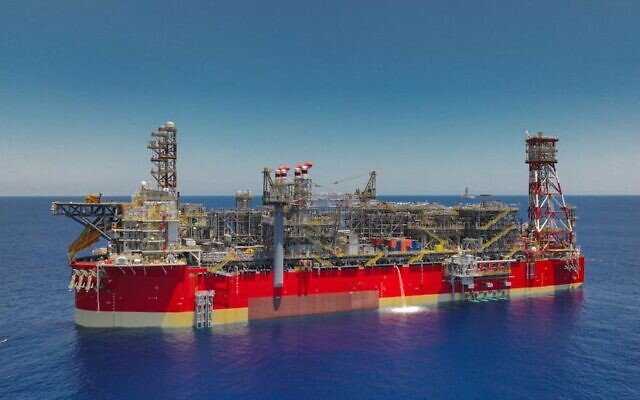Lebanon and Israel’s long-stalled maritime deal is 95 percent complete, Beirut’s foreign minister said Saturday.
Abdallah Bouhabib told the An-Nahar newspaper that both sides had an interest in completing the agreement quickly. He added that he believed now was the best time to seal a deal, as a new government in Israel after the November election might have different interests.
“The problem is that there is a caretaker government in Israel and they have elections, and they throw test balloons to see the reactions and their impact on the mood,” Bouhabib said.
“It is said that if Benjamin Netanyahu comes [into power]he may blow up the agreement. Here [in Lebanon]a president with a different approach and vision may come. Therefore, the time is right for an agreement.”
Lebanese President Michel Aoun’s term in office is set to end in October.
On Friday, US mediator Amos Hochstein noted progress in indirect talks between Lebanon and Israel, but said more work was needed for a final agreement.
The dispute which involves competing claims over offshore gas fields escalated in June after Israel moved a production vessel near the Karish offshore field, which is partly claimed by its northern neighbor.
US Senior Adviser for Energy Security Amos Hochstein in a meeting with Lebanon’s caretaker Energy Minister Walid Fayad in Beirut on July 31, 2022. (Anwar Amro/AFP)
Energean, the London-listed company licensed by Israel to extract gas from Karish, said on Thursday that gas would begin flowing within weeks, despite the disagreement.
“I really feel that we’re making progress these last few several weeks,” Hochstein said at Beirut airport after meetings with Lebanon’s president, prime minister and parliament speaker.
“I am hopeful with what I heard today and with what we discussed today but still more work needs to be done,” he told reporters at the end of his third visit to Lebanon since June.
Hochstein was in Israel on Thursday where he met with National Security Council chairman Eyal Hulata and Foreign Ministry director Alon Ushpiz.
Lebanon and Israel, whose border is UN-patrolled, have no diplomatic relations.
They resumed maritime border negotiations in 2020 but the process was stalled by Beirut’s claim that the map used by the United Nations in the talks needed modifying.
Lebanon initially demanded 860 square kilometers (330 square miles) in the disputed maritime area but then asked for an additional 1,430 square kilometers (552 square miles), including part of the Karish field.

Energean’s floating production system (FPSO) at the Karish gas field in the Mediterranean Sea. (Energean)
Israel claims the field lies in its waters and is not part of the disputed area subject to ongoing negotiations.
A Lebanese official in mid-June said Beirut had made a new offer to Hochstein, holding back on demands for territory where Israel planned to imminently extract gas.
Beirut was pushing for the country’s maritime border to exclude Karish and include the nearby “Sidon reservoir,” known as the Qana field, instead, the official told AFP at the time.
Lebanon’s Hezbollah, which launched drones towards the Karish gas field in July, had threatened attacks if Israel proceeds with gas extraction in the disputed area.
Defense Minister Benny Gantz said late last month that any attack on its gas assets could reignite war between the two sides.
US President Joe Biden discussed the dispute with Prime Minister Yair Lapid in late August, when he “emphasized the importance of concluding the maritime boundary negotiations between Israel and Lebanon in the coming weeks,” according to the White House.
AFP contributed to this report.
